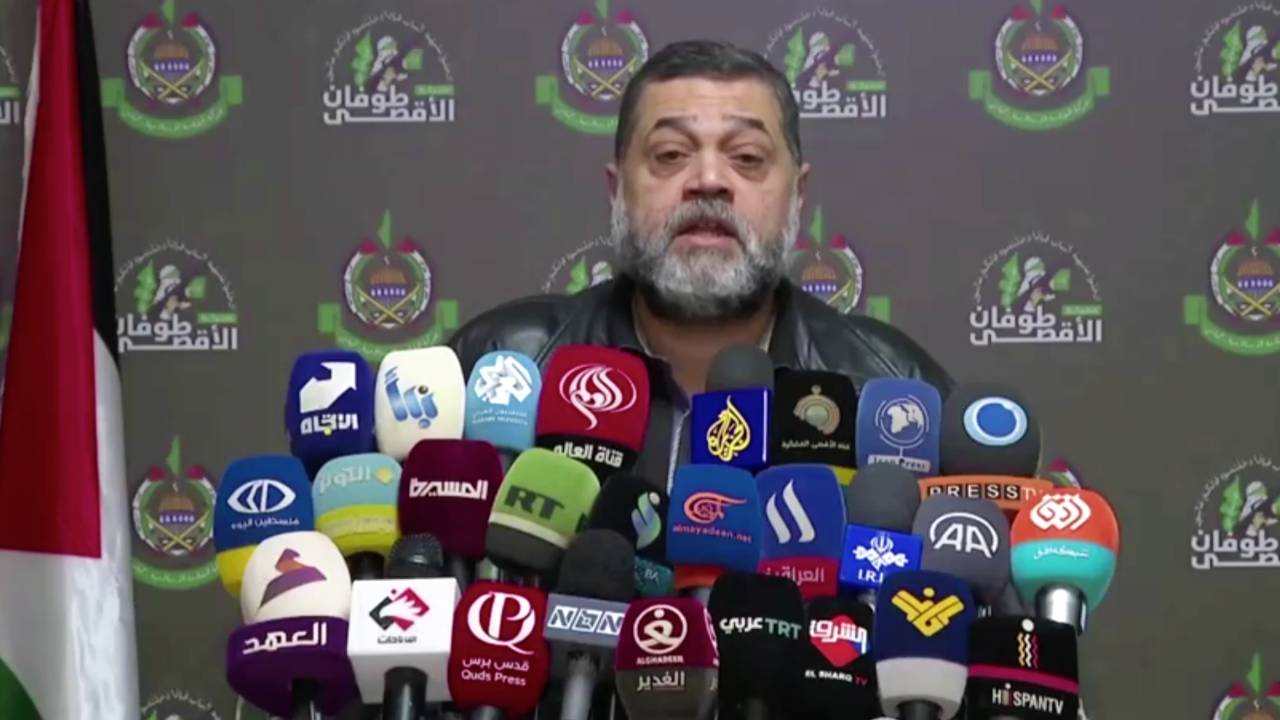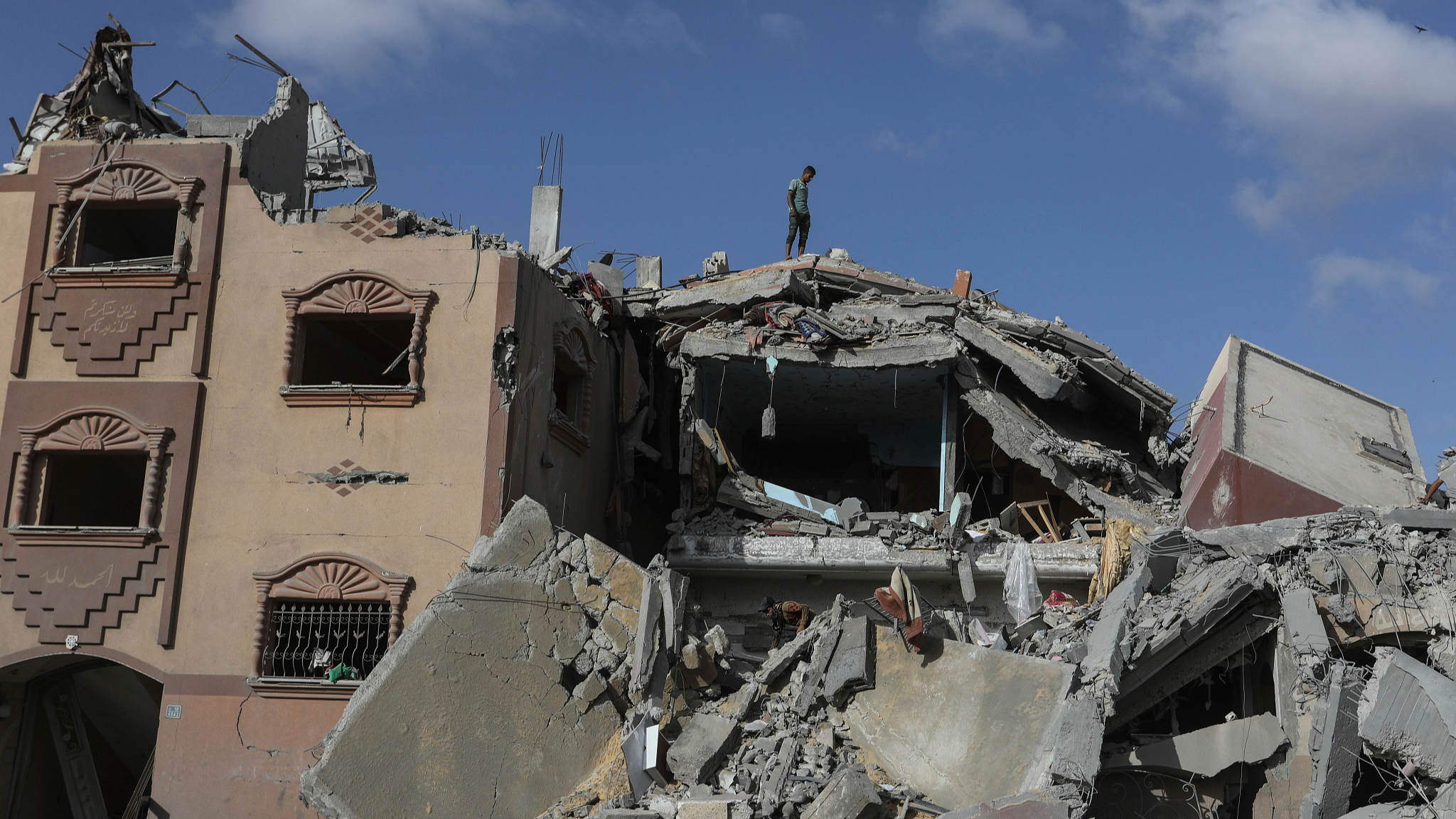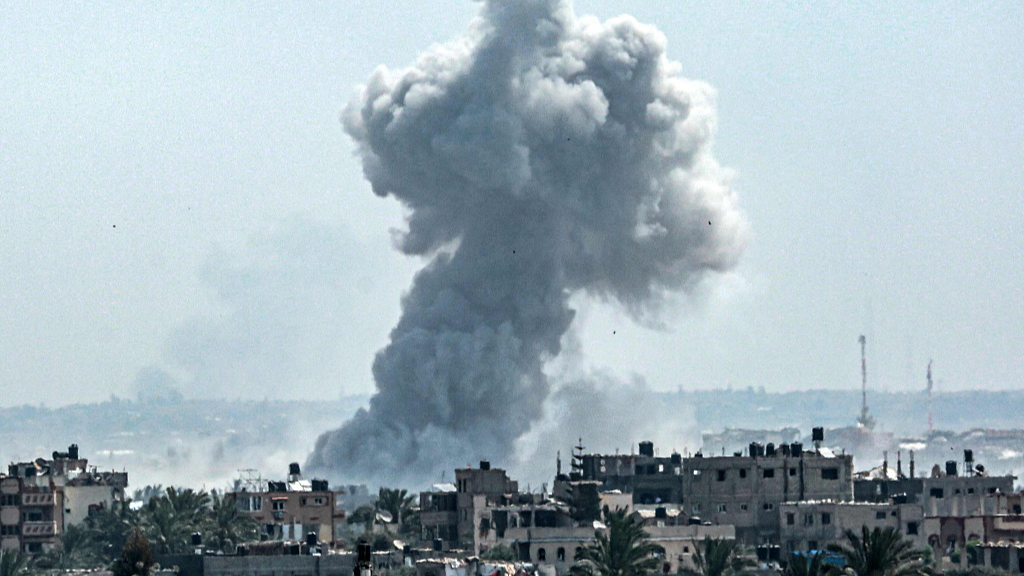Israeli strikes across Gaza killed scores overnight as battles raged Sunday in the besieged territory’s south as Hamas reviewed a proposal for a halt in the nearly four-month-long war.
That’s as the U.S. and the UK launched strikes against 36 Houthi targets in Yemen, in the second day of major operations against Iran-linked groups following a deadly attack on American troops last weekend, the latest blows in a conflict that is spreading into the wider Middle East.
The Houthis, who control swathes of Yemen, have been attacking Israeli-linked ships passing through the Red Sea. They say their actions are in solidarity with Palestinians as Israel strikes Gaza. “These attacks will not deter us from our ethical, religious and humanitarian stance in support of the resilient Palestinian people in the Gaza Strip,” a spokesperson said.
Meanwhile in Gaza, the local health ministry said Israeli strikes had killed at least 92 people overnight, with strikes and tank fire hitting the Strip’s main southern city of Khan Younis, while air raids struck the enclave’s last refuge for displaced people in Rafah.
Israel has warned its ground forces could advance on the border city where hundreds of thousands of people seeking refuge from the fighting are sheltered in makeshift encampments. Once home to 200,000 people, Rafah now hosts more than half of Gaza’s population, the United Nations said.
“We are exhausted,” said displaced Gazan Mahmud Abu al-Shaar, urging “a ceasefire so that we can return to our homes.”
Experts and rights groups say that Israeli forces have systematically destroyed buildings near the border in an attempt to create a buffer zone inside the Palestinian territory. Israel has not publicly confirmed the plan, which Nadia Hardman, a refugee rights expert at Human Rights Watch, said “may amount to a war crime.”
“We are seeing mounting evidence that Israel appears to be rendering large parts of Gaza unlivable,” she said. Currently the death toll in Gaza since the beginning of October stands at 27,238, higher than the death toll in Ukraine, a conflict which is soon set to enter its second year.
Negotiations for truce
With the Gaza war set to enter its fifth month on Wednesday, international mediators were pressing to seal a proposed truce deal thrashed out in a Paris meeting of top U.S., Israeli, Egyptian and Qatari officials. A top Hamas official in Lebanon, Osama Hamdan, said on Saturday that the proposed framework needed developing to truly halt the violence.
The group needed more time to “announce our position,” Hamdan said, “based on… our desire to put an end as quickly as possible to the aggression that our people suffer.” He added that he valued “the efforts undertaken by our brothers in Egypt and Qatar in their attempts to help reach a permanent ceasefire in Gaza.”
Hamas has said for there to be a ceasefire, there must be a complete halt to the fighting, the withdrawal of Israeli forces from Gaza, ending the blockade, reconstruction of the Strip and the freeing of Palestinian prisoners. Other points of contention appear to be a buffer zone that Israel is carving out on the Gaza side of the border.
A Hamas source had said the proposal involves an initial six-week pause that would see more aid delivered into the Gaza Strip and exchanges of some Israeli hostages for Palestinian prisoners held in Israel.
Concern for hostages still in Gaza and security failures surrounding the October 7 attack – the deadliest in Israel’s 75-year history – have led to criticism of Prime Minister Benjamin Netanyahu and rallies against the government.
Michal Hadas, protesting in Tel Aviv on Saturday night, said she feared Israel’s leaders were dragging out the conflict for political reasons, “because as long as the war continues there will be no election.”
At a rally for hostages’ families, Carmit Palty Katzir, sister of captive Elad Katzir, called for swifter action. “Every second a deal is not closed, the price goes up. The number of hostages who won’t return alive goes up. The number of soldiers risking their lives without a clear plan for the day after goes up,” she said.
Wider conflict brewing
The war has sent regional tensions soaring, with a surge in attacks from Israel on Hezbollah fighters and by Iran-allied groups against Israeli and U.S. targets in solidarity with Gaza, triggering counterattacks from Tel Aviv’s allies Washington and London.
U.S. and UK strikes against Yemen late on Saturday hit buried weapons storage facilities, missile systems, launchers and other capabilities, the Pentagon said. The Houthis have used these facilities to attack Israeli-linked shipping – and now U.S. and UK ships in the Red Sea. It added that Sunday’s strikes had support from Australia, Bahrain, Canada, Denmark, the Netherlands and New Zealand.
Residents said the attacks shook buildings in Houthi-controlled Sanaa. The group’s military spokesperson Yahya Sarea said the U.S. strikes “will not pass without a response and consequences.” The group did not announce any casualties. Houthi-run media called these “the most violent” strikes yet.
“This is not an escalation,” said UK Defense Minister Grant Shapps. “We have already successfully targeted launchers and storage sites involved in Houthi attacks, and I am confident that our latest strikes have further degraded the Houthis’ capabilities.”
The Yemen strikes are running parallel to an unfolding U.S. campaign of retaliation over the killing of three American soldiers in a drone strike on an outpost in Jordan a week ago. On Friday, the U.S. carried out the first wave of that retaliation, striking in Iraq and Syria against more than 85 targets, reportedly killing nearly 40.
The Pentagon has said it does not want war with Iran, which it has accused of being linked to the attacks on U.S. soldiers, and does not believe Tehran wants war either. U.S. Republicans have been putting pressure on President Joe Biden, a Democrat, to deal a blow to Iran directly.
Iran has joined Iraq and Syria in condemning the attacks and accusing the U.S. of violating the sovereignty of countries in the region
The Israeli military said on Saturday that since the outbreak of the war on Gaza it had struck more than 50 targets in Syria linked to Lebanon’s Hezbollah. It added that it had also attacked 34,000 Hezbollah targets, putting the number of dead at more than 200.
The remarks, in a briefing by chief military spokesperson Rear Admiral Daniel Hagari, were a departure from Israel’s usual reticence about Syria operations. “Everywhere Hezbollah is, we shall be. We will take action everywhere required in the Middle East,” Hagari said.
Source(s): CGTN

 News6 days ago
News6 days ago
 Sports6 days ago
Sports6 days ago
 News6 days ago
News6 days ago
 World6 days ago
World6 days ago
 Sports6 days ago
Sports6 days ago
 News6 days ago
News6 days ago
 News5 days ago
News5 days ago
 News6 days ago
News6 days ago


















